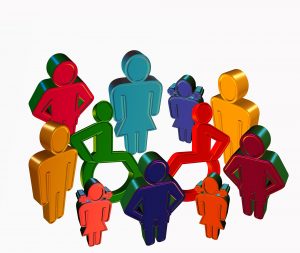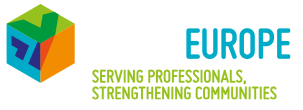Shalom,
On Seder night (coming up this year on March 30th) we make the powerful declaration, “Let all who are hungry, come and eat!” This statement of radical inclusivity and welcoming is a particularly important value for Pesach, and so we are dedicating this month’s newsletter to the value of inclusivity – welcoming people all backgrounds and abilities to our Jewish communities.
Don’t forget to check out Yesod’s Resource Archive for Nisan and Pesach as it includes great suggestions for how to make your seder relevant and interesting.
We’ll soon read in the Hagaddah about how Pharoah, ruler of ancient Egypt, exemplified a mentality of superiority and dominance over others. This attitude leads to the enslavement and dehumanising of those who are deemed inferior, especially those with disabilities. Opposing this approach is the Jewish perspective which requires us to control our own feelings of self-importance so as not to crush those who are different from us. This stems from the Jewish concept that all people are made B’tzelem Elohim – In the image of God. This approach requires us to value the humanity inherent in every person, and to ensure dignity and justice for all people.
Unfortunately in the world around us we see countries and governments who dominate those deemed ‘different’ or ‘lesser than’. But perhaps even in our own lives and work we unintentionally let superiority and exclusivity creep in! To combat these tendencies, we ask ourselves the following questions:
Does everyone feel comfortable and accepted on all our programmes?
Do people with disabilities feel included and valued?
How often do we see people with disabilities at our synagogues, programmes or gathering places?
Take the following Disability Implicit Association Test from Harvard University and see whether you have implicit bias towards or against people with disabilities.
Being Inclusive Podcast
In this month’s Yesod podcast Rabbi David Levin-Kruss, Director of Jewish Education for Europe for the American Jewish Joint Distribution Committee (JDC), teaches how Jewish texts and values offer a structure to make all Jews, no matter the disability, feel included and welcome in our community. Click here to listen to the podcast and here to view the accompanying source sheet.
There are five stages to inclusivity:
- Just be nice!
It may seem obvious but sometimes we either consciously or unconsciously say or do actions that hurt others. This idea is reflected in Leviticus 19:14 You shall not insult the deaf, or place a stumbling block before the blind. You shall fear your God: I am the LORD. - Our greatest leaders who had disabilities achieved great things.
Some of the greatest leaders in both the world and the Torah had disabilities. Isaac and Jacob suffered from poor eyesight and the great leader Moses says (Exodus 4:10): I am not a man of words…I am slow of speech and slow of tongue. - Know we are all created B’tzelem Elohim (in the image of G-d).
Each person was made ‘in the image of God’. We all have a divine spark in us, and everyone, no matter what their situation needs to be treated with dignity. - Everything we do should be for the sake of heaven.
Actually change programming to make sure everyone is included. Even if it means making changes to programs ‘that have always run this way’ or are a ‘tradition’. - Every life is purposeful.
As the Mishneh (Sanhedrin states): The Holy One [blessed be He] strikes every man from the die of the First Man, and yet no man is quite like his friend. We are all created differently, and each person has their own disabilities and difficulties. Focus on what people can do, rather than what they cannot do.
So as you get ready for Pesach, which the Sages call “the time our freedom”, let’s work on using our freedom to include people with disabilities so everyone feels free.
Yesod
Next steps for modeling the value of Inclusivity
Use the following resources for yourself, bring them to your team, and have them in mind when creating vision and programmes.
- The Jewish Federation of Greater Washington has great inclusion discussion guides on the topics of Physical Accessibility, Communication, Worship and Ritual, Volunteer and Employment, Education and Social, Recreational and Leisure.
- Both the Religious Action Center for Reform Judaism and the Reconstructionist Assembly have resource guides including reflective questions organisations can ask themselves.
Pesach Resources
Don’t forget to check out Yesod’s Resource Archive for Nisan and Pesach as it includes great suggestions for how to make your seder relevant and interesting.
- This year’s Global Day of Jewish Learning study theme is Extraordinary Passages: Texts and Travels, and the most extraordinary is the passage out of Egypt. They have created a supplement to the Haggada, “The Exodus: An Extraordinary Passage”, which contains excerpts from the writings and commentaries of Rabbi Steinsaltz and discussion questions to help people explore journeys, asking for example, why is it important to personalize the journey out of Egypt? Click here to download the guide.
- For Pesach, on the theme of Freedom, the Limmud Chavruta Project challenges you to consider how the establishment of a Jewish state in the Land of Israel in 1948 has affected how free we all are. Over four sections that echo the Haggadah’s Four Questions, traditional and modern texts interact to encourage conversation around Diaspora, Israel, Jews and non-Jews. With the Limmud Chavruta Project’s commitment to inclusive Jewish learning, all texts are translated and there are no right answers, only invitations to ask more questions! Click here.

